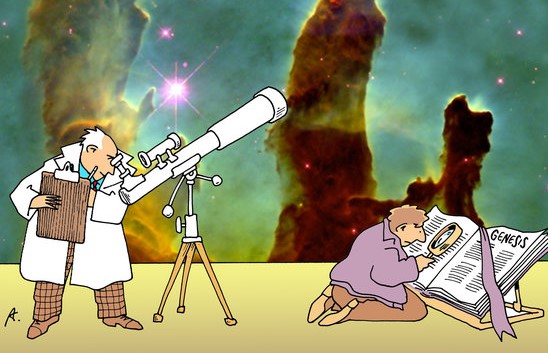
What Scientists Can Teach Us about God
Interesting that during the election campaign, “science” became a bone of contention, with one side accusing the other of ignoring it.
Most of us don’t give the topic “science” much thought, but as a regular listener to “Science Friday” on National Public Radio and other media reports, I’m aware that many scientists worry about the public’s lack of enthusiasm for, and sometimes even hostility toward, science.
I really don’t think there’s much to worry about. A Pew Research Center poll earlier this year found that most Americans “see net benefits from science for society, and they expect more ahead.
Strong Public Support
“About three-quarters of Americans say science has, on balance, had a mostly positive effect on society. And 82 percent expect future scientific developments to yield benefits for society in years to come. The overall portrait is one of strong public support for the benefits of science to society….”
What about the attitude toward science of people who profess a religion, and people searching for God?
A Pew poll from 2015 found that less than one-third of Americans say their personal religious beliefs conflict with science, while two-thirds say there is no conflict between their own beliefs and science.
In what may be a surprise to many, the less religious you are the more likely you are to see a conflict. The idea that science and religion are often in conflict is particularly common among Americans who are, themselves, not very religiously observant as measured by frequency of attendance at worship services.
Ways of Knowing
I’m among those who see no conflict, at least when both ways of knowing are understood. In fact, we have a lot to learn from each other.
I’ve often quoted in these blogs from a book by Francis Collins, who is in the news these days commenting on the pandemic. Collins, one of the world’s leading scientists, is head of the National Institutes of Health. His book is called “The Language of God,” and I recommend it.
But perhaps the most famous scientist, Albert Einstein, has the most insightful take on belief in God. According to a 2007 Time Magazine article about an Einstein biography, Einstein may not have been religious in a traditional sense but he had useful insights into what is meant by faith, starting with the awe and humility with which we should view the natural world.
“(It’s) … too vast for our limited minds,” he said in an interview. “We are in the position of a little child entering a huge library filled with books in many languages. The child knows someone must have written those books. It does not know how. It does not understand the languages in which they are written. The child dimly suspects a mysterious order in the arrangement of the books but doesn’t know what it is.
“That, it seems to me, is the attitude of the most intelligent human being toward God. We see the universe marvelously arranged and obeying certain laws but only dimly understand these laws.”
Rejected Atheist Label
Throughout his life, Einstein rejected the view that he was an atheist, says the article, saying that what separates him from atheists is “a feeling of utter humility toward the unattainable secrets of the harmony of the cosmos.”
“The most beautiful emotion we can experience is the mysterious,” he wrote. “It is the fundamental emotion that stands at the cradle of all true art and science. He to whom this emotion is a stranger, who can no longer wonder and stand rapt in awe, is as good as dead, a snuffed-out candle.
“To sense that behind anything that can be experienced there is something that our minds cannot grasp, whose beauty and sublimity reaches us only indirectly; this is religiousness. In this sense … I am a devoutly religious man.”
To paraphrase Jesus, whom Einstein greatly admired, I would say Einstein was “not far from the Kingdom of God.” And his views are helpful in the search for God.



